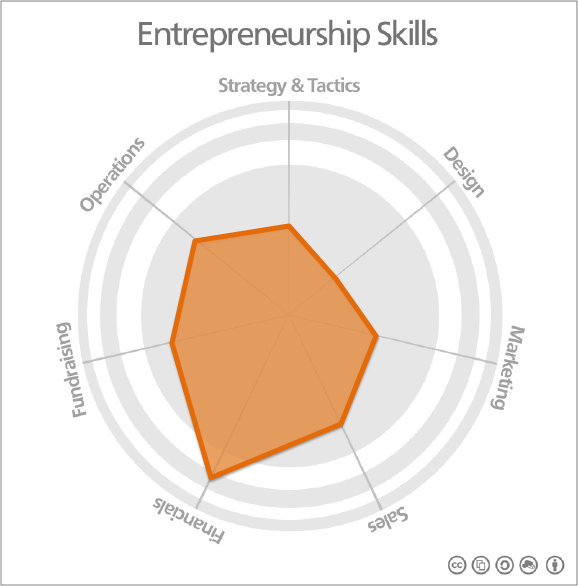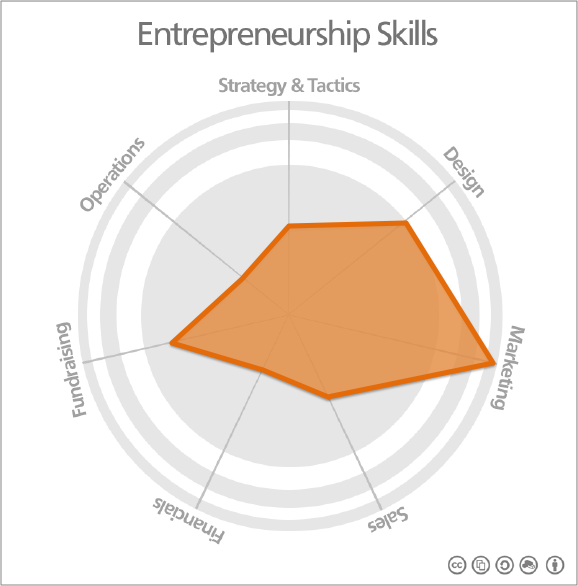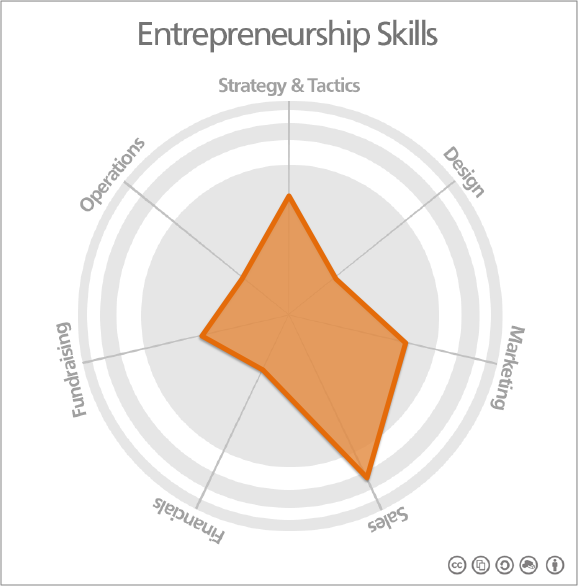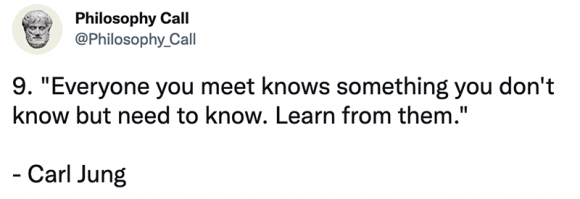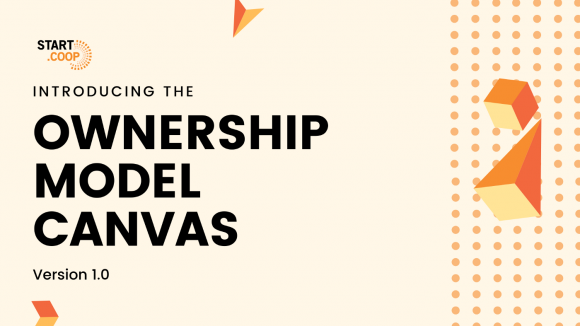Do accelerators really help is the second most asked question in the industry after how do I apply?
That would seem an odd question almost twelve years after the birth of the modern business accelerator, except for the fact that there were hundreds of useless business incubators back in the dot com boom. This is an industry with a multi-decade history of big promises. And industry with thousands of accelerator programs, but only a handful that have managed to operate 10 or more sessions or which have grown past a single city.
The short answer is that yes, some accelerators really do help, while unfortunately, many others do not.
The key differences between the successful and wanna-be accelerators are far from obvious. They are rarely mentioned on the websites and in other marketing materials. These differences are not well-known, which means entrepreneurs have little chance to know what to look for in an accelerator, and as such, too often waste their time at programs that do not help much, if at all.
Given that, why does Fledge work, and work so well?:
1- Incentives
In business model analysis, a good starting place is to follow the incentives. For an accelerator, why do they do what they do? What do they need to do in order to consider their business a success?
For Fledge, the goal is twofold: (1) to help impactful startups (a.k.a. conscious companies) succeed, and (2) make money for our investors in the process. Goal 2 comes directly from goal 1, but more importantly, our profits ONLY come if our startups succeed. We thus have an incentive to help our startups for years, and our business model and organization is structured to accommodate that need.
We invest in each and every fledgling to set up that incentive structure, and we’ve started raising a seed fund to provide investment beyond our initial stipend to help ensure none of our fledglings fail due to an inability to raise capital.
This contrasts dramatically to the 500+ other accelerators focused on social good, 99% of which are organized as nonprofits, whose intentions are wonderful, but whose business model and incentives do not match those intentions.
2- Education
Creating a new company is an incredibly complex intertwined set of tasks, requiring a wide array of skills that are not commonly taught in high school, to undergraduates, nor even within most MBA programs. That’s one problem. The other problem is that if a founding team is missing any of these skills, the odds of failure of their startup goes up dramatically.
The most obvious case is sales. If no one on the founding team has any experience in sales, then the odds of closing the first few customers is low. They may be able to hire a sales person, but if they’ve never done that job themselves, nor hired sales people before, odds are they’ll make a bad hire.
The same is true for business strategy, product design, marketing, accounting, fundraising, and operations. Miss any of those key areas, and it no longer matter how good the idea pitches in an elevator, as all of those pieces are needed to make an actual, viable company.
At Fledge, we address this issue by providing an MBA-level class in Entrepreneurship, to help our founders fill in their knowledge gaps, to addresses their own weaknesses, to get help early, before any of these gaps can cause major issues as the companies leave and grow.
The common form of education at accelerators is the guest speaker, untrained and inexperienced at teaching, who at best shares an exciting startup story. It is far easier and exciting to bring in a famous founder than to develop an actual teaching curriculum, despite the latter being far more useful to entrepreneurs.
We might have done the same if not for some teacher backing out at the last minute from teaching Entrepreneurship at what was then called the Bainbridge Graduate Institute. Our founder, Luni, was asked to teach the class, only to find there was no MBA-level book to teach from, and started writing The Next Step to channel my 20 years of startup experiences.
3- Mentor Whiplash
Every accelerator promises coaches and mentors. Few understand that the key to mentorship is mixing quantity with quality. Luni learned this at TechStars, which invented a technique called Mentor Whiplash.

This is a non-intuitive solution to a problem no entrepreneur even knows they have. Entrepreneurs think they need a bit of advice on their plan. Perhaps one mentor who can read a financial plan to point out any obvious flaws, then call it done and go make some sales. Or a mentor good at marketing, to help redraft the copy on the website, then call it done. Or an investor to help word the ask in the investor deck, so that investors can start writing checks already.
What entrepreneurs really need is to open their eyes to see all the assumptions they have in their plans, some of which are wrong, some right but together pointing the business in the wrong direction.
What happens at Fledge is that the fledgling meet mentor after mentor after mentor, each with different experiences, each questioning the entrepreneurs in difficult ways, each asking “why” and “what if” in enough different ways to open the eyes of the entrepreneurs to new potential directions.
The end results of this isn’t an answer, it is a new set of deeper questions that the entrepreneur didn’t even know existed when they applied.
From this process comes a few potential outcomes. Sometimes, the plan is unchanged from where it started, but after these discussions, the entrepreneur can now explain why that is the right plan. Sometimes the plan is radically changed, pivoted, to something with a grander vision or something with a tighter focus. Most often it is in between, a far stronger plan with some minor changes, with Plan B, Plan C, and Plan D in tow from all those discussions, as Plan A rarely works out.
Fledge is only getting better at flooding our fledglings with mentors as we grow beyond two cities toward four. What was once five years 80ish people who all knew me personally is now 440 mentors from dozens of countries who can provide advice on just about anything imaginable. Meanwhile, we still see programs touting that they assign 1-2 mentors per team.
4- Business, Financial, Marketing, and Sales plans… plus Plan B
Few startups take enough time to do strategic planning. By definition, first-time entrepreneurs don’t really know what “enough” time is when it comes to planning, and even if they did, they rarely have the guidance of mentors to help them do it correctly.
 One of the biggest benefits of any accelerator program, especially national/global in-residence programs that bring entrepreneurs out of their home cities, is the break from the normal routine and the weeks of time dedicated to business planning.
One of the biggest benefits of any accelerator program, especially national/global in-residence programs that bring entrepreneurs out of their home cities, is the break from the normal routine and the weeks of time dedicated to business planning.
At Fledge we take planning seriously. We work on the business plan, and the financial model. We also work on a marketing plan, and a plan for the sales process and future sales force. We spend a lot of time working on Plan B, as almost no successful company succeeded with their Plan A.
All of these are iterative processes. All are inter-related. Which means that as the mentor whiplash is happening, ideas keep changing, plans keep shifting, and it feels to the entrepreneurs that they’ll never be done. Which is perfect, as one key lesson we teach is that plans are never done.
As we say in Lesson #1, in the morning of Day 2: your plan is flawed, all plans are flawed, all plans even when “fixed” are still flawed. Plan accordingly.
Talking to participants in other programs, most tend to focus on what seems to be the current problem at-hand rather than tearing apart the business plan the startup arrived with on Day 1 and using those pieces to create the far better plan the company will talk about at Demo Day.
5- Telling a Great Story
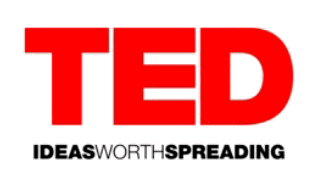 When it comes to Demo Day, Fledge has always been different. In part because we focused on conscious companies, and there aren’t 500 impact investors in Seattle or Lima or Barcelona to make the event solely around investors. Most importantly, because we focus on conscious companies, and thus our startups have incredibly inspirational stories to tell the whole world, not just investors.
When it comes to Demo Day, Fledge has always been different. In part because we focused on conscious companies, and there aren’t 500 impact investors in Seattle or Lima or Barcelona to make the event solely around investors. Most importantly, because we focus on conscious companies, and thus our startups have incredibly inspirational stories to tell the whole world, not just investors.
Fledge Demo Day thus tries to be far more like TED than an Investors’ Circle pitch event.
What most people don’t realize is how difficult it is to create and perform a great TED talk. It’s a skill not taught in school, and a skill few entrepreneurs pick up before they apply to Fledge. A real (annual Vancouver stage) TED talk takes months to prepare. At Fledge, we try and squeeze all that work into three weeks.
We look at Pixar and Jobs and other great story tellers for inspiration. We use our giant mentor network for feedback. We iterate and iterate and iterate more times than anyone who hasn’t dared tried doing a TED talk would find reasonable.
The results are well worth the effort.
Again, the actual results are not-obvious. What is obvious is that the fledglings tell their stories. The non-obvious part is that the process of finding that story teaches the entrepreneur what is important about their product and their company. The process teaches the skills of public speaking, which then come in handy when raising money from investors, when talking to the press, and when leading the company.
The great stories we uncover while digging through the good stories we start with win over those investors, excite the press, and make people want to join the company. No 10-slide investor pitch comes close at doing all that.
6- Kaizen / Continuous Improvement
 Fledge9 works better than Fledge6. Fledge6 better than Fledge3. Fledge3 than Fledge1. Sorry to the early fledglings… but way better.
Fledge9 works better than Fledge6. Fledge6 better than Fledge3. Fledge3 than Fledge1. Sorry to the early fledglings… but way better.
Why? Because we go out of our way to make each session better.
We don’t ask for feedback from our fledglings after each session, we ask for that feedback in the midst of the sessions. We tune the programs to fit the needs of the participants, and from that learn what first-time entrepreneurs truly need.
We talk to directors at other programs, to learn from their experiences. We attend industry events of accelerator programs to share best practices.
We specifically ask applicants who have attended other programs about their experiences. A few of our fledglings came to us from other programs and a handful of our fledglings have gone on to attend assorted other programs.
We experiment, sometimes big like Kick (which took off and was spun out into Spring.is), sometimes into left field like FledgeX (which taught us how much we like in-person programs).
From all this, the current Fledge9 makes it sound like we’ve yet to finish operating nine sessions, but in realty we’ve directly run more than a dozen accelerator sessions in five years, plus helped operate dozens of others using our curriculum.
For learning organizations, iteration is the key to systemic improvements, and most of those improvements are tiny subtle ideas that make all the difference, but which go unnoticed by the participants and mentors alike.
7- Replication, not Cloning
Finally, there was a theory amongst Fledge investors that the secret ingredient to Fledge was its founder, Luni. Many of those investors said Fledge couldn’t and wouldn’t work without Luni (or his clone) in the room.
To prove their praise unfounded, and more importantly, to fulfill the mission of helping more impactful startups in more places around the world, Luni started replicating Fledge in 2016. Fledge8 in Lima, Peru proved that the Fledge curriculum is replicable, and that the curriculum is indeed useful to startups.
This replication is the best news in terms of Fledge working for startup, as it means that in the next five years we can copy the program to far more cities reaching hundreds of more conscious startups, impacting the lives of hundreds of millions of people in all corners of the globe.
Conclusion
Long, long, long story short, do accelerators work? Short answer: most don’t, Fledge does. Applications are either open now or soon will be. More mentors always wanted. More investors too.
[UPDATE: Fledge’s founder talks about what doesn’t work for entrepreneurs in this TL;DR post on his blog.]

